Related Research Articles

A martyr is someone who suffers persecution and death for advocating, renouncing, or refusing to renounce or advocate, a religious belief or other cause as demanded by an external party.
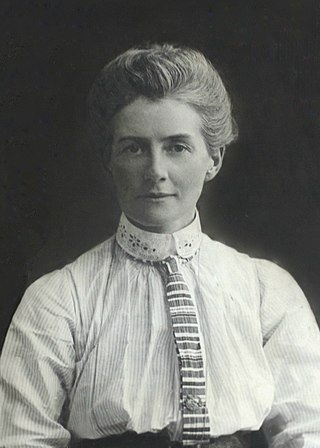
Edith Louisa Cavell was a British nurse. She is celebrated for treating wounded soldiers from both sides without discrimination during the First World War and for helping some 200 Allied soldiers escape from German-occupied Belgium. Cavell was arrested, court-martialed under German military law and sentenced to death by firing squad. Despite international pressure for mercy, the German Government refused to commute her sentence and she was shot. The execution received worldwide condemnation and extensive press coverage.
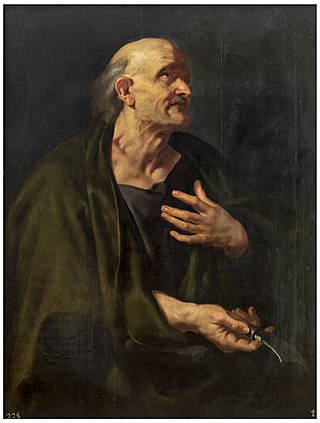
Bartholomew was one of the twelve apostles of Jesus according to the New Testament. Most scholars today identify Bartholomew as Nathanael or Nathaniel, who appears in the Gospel of John.

Catherine of Alexandria, also spelled Katherine is, according to tradition, a Christian saint and virgin, who was martyred in the early fourth century at the hands of the emperor Maxentius. According to her hagiography, she was both a princess and a noted scholar who became a Christian around the age of 14, converted hundreds of people to Christianity and was martyred around the age of eighteen. More than 1,100 years after Catherine's martyrdom, Joan of Arc identified her as one of the saints who appeared to and counselled her.

Ranavalona I, also known as Ranavalo-Manjaka I and the “Mad Monarch of Madagascar” was sovereign of the Kingdom of Madagascar from 1828 to 1861. After positioning herself as queen following the death of her young husband, Radama I, Ranavalona pursued a policy of isolationism and self-sufficiency, reducing economic and political ties with European powers, repelling a French attack on the coastal town of Foulpointe, and taking vigorous measures to eradicate the small but growing Malagasy Christian movement initiated under Radama I by members of the London Missionary Society.

The Passion of Saints Perpetua and Felicity is a diary by Vibia Perpetua describing her imprisonment as a Christian in 203, completed after her death by a redactor. It is one of the oldest and most notable early Christian texts.

Mary Dyer was an English and colonial American Puritan-turned-Quaker who was hanged in Boston, Massachusetts Bay Colony, for repeatedly defying a Puritan law banning Quakers from the colony. She is one of the four executed Quakers known as the Boston martyrs.
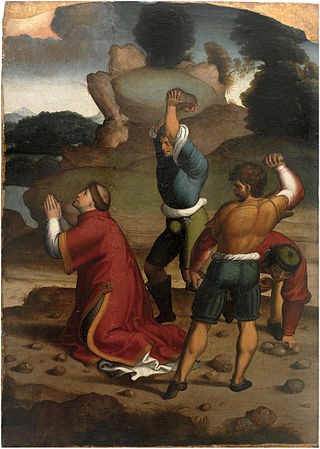
In Christianity, a martyr is a person who was or is killed for their testimony for Jesus or faith in Jesus. In years of the early church, stories depict this often occurring through death by sawing, stoning, crucifixion, burning at the stake, or other forms of torture and capital punishment. The word martyr comes from the Koine word μάρτυς, mártys, which means "witness" or "testimony".

The Martyrs of Córdoba were forty-eight Christian martyrs who were executed under the rule of Muslim administration in Al-Andalus. The hagiographical treatise written by the Iberian Christian and Latinist scholar Eulogius of Córdoba describes in detail the executions of the martyrs for capital violations of Islamic law (sharīʿa), including apostasy and blasphemy. The martyrdoms recorded by Eulogius took place between 850 and 859 AD, which according to the Mālikī judges of al-Andalus broke the treaty signed between Muslims and their Christian subjects.
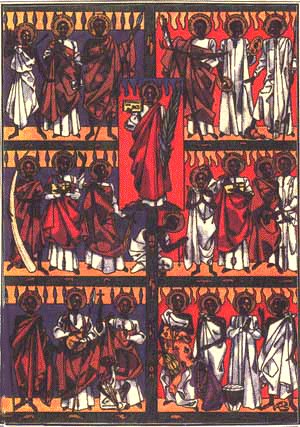
The Uganda Martyrs are a group of 22 Catholic and 23 Anglican converts to Christianity in the historical kingdom of Buganda, now part of Uganda, who were executed between 31 January 1885 and 27 January 1887.

Theodora is a dramatic oratorio in three acts by George Frideric Handel, set to an English libretto by Thomas Morell. The oratorio concerns the Christian martyr Theodora and her Christian-converted Roman lover, Didymus. It had its first performance at Covent Garden Theatre on 16 March 1750. Not popular with audiences in Handel's day, Theodora is now recognised as a masterpiece. It is usually given in concert, being an oratorio, but is sometimes staged.

Crispina was a virgin martyr of Africa who suffered during the Diocletian persecution. She was born at Thagora, a town in the Roman province of Numidia, located in Taoura, Algeria. in North Africa.) She died by beheading at Theveste, in Numidia.

Christians were persecuted, sporadically and usually locally, throughout the Roman Empire, beginning in the 1st century AD and ending in the 4th century. Originally a polytheistic empire in the traditions of Roman paganism and the Hellenistic religion, as Christianity spread through the empire, it came into ideological conflict with the imperial cult of ancient Rome. Pagan practices such as making sacrifices to the deified emperors or other gods were abhorrent to Christians as their beliefs prohibited idolatry. The state and other members of civic society punished Christians for treason, various rumored crimes, illegal assembly, and for introducing an alien cult that led to Roman apostasy. The first, localized Neronian persecution occurred under Emperor Nero in Rome. A more general persecution occurred during the reign of Marcus Aurelius. After a lull, persecution resumed under Emperors Decius and Trebonianus Gallus. The Decian persecution was particularly extensive. The persecution of Emperor Valerian ceased with his notable capture by the Sasanian Empire's Shapur I at the Battle of Edessa during the Roman–Persian Wars. His successor, Gallienus, halted the persecutions.

The woman with seven sons was a Jewish martyr described in 2 Maccabees 7. She and her seven sons arrested during the persecution of Judaism initiated by King Antiochus IV Epiphanes. They were ordered to consume pork and thus violate Jewish law as part of the campaign. They repeatedly refuse, and Antiochus tortures and kills the sons one by one in front of the unflinching and stout-hearted mother before eventually killing her as well.

The Guernsey Martyrs were three women who were burned at the stake for their Protestant beliefs, in Guernsey, Channel Islands, in 1556 during the Marian persecutions.
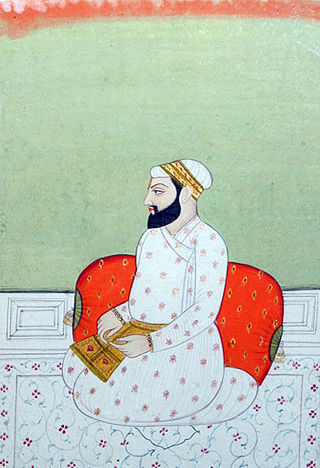
Guru Arjan was the fifth of the ten total Sikh Gurus. He compiled the first official edition of the Sikh scripture called the Adi Granth, which later expanded into the Guru Granth Sahib. He is regarded as the first of the two Gurus martyred in the Sikh faith.

The cinema of Madagascar refers to the film industry in Madagascar.

Christianity in Madagascar is practiced by 85.3% of Madagascar's population according to the Pew Research Center in 2020. However, other surveys put the figure at 58%.

Perpetua and Felicity were Christian martyrs of the 3rd century. Vibia Perpetua was a recently married, well-educated noblewoman, said to have been 22 years old at the time of her death, and mother of an infant son she was nursing. Felicity, a slave woman imprisoned with her and pregnant at the time, was martyred with her. They were put to death along with others at Carthage in the Roman province of Africa.

The Martyrs of Persia under Shapur II were Assyrian Christian martyrs who were put to death by Shapur II of Persia for failing to renounce their faith. There may have been several thousand in total. They are remembered as a group in the Roman and Orthodox calendars. The Roman Martyrology gives feast days of 6 April, 22 April and 9 May for different groups.
References
- ↑ Gerald H. Anderson (1999). Biographical Dictionary of Christian Missions. Wm. B. Eerdmans Publishing. p. 559. ISBN 978-0-8028-4680-8.
- ↑ Robert Benedetto; Donald K. McKim (6 October 2009). Historical Dictionary of the Reformed Churches. Scarecrow Press. pp. 387–. ISBN 978-0-8108-7023-9.
- ↑ "Rasalama maritiora (Rasalama)". africine.org (in French). Fédération africaine de la critique cinématographique (FACC). 2020. Retrieved 22 February 2024.